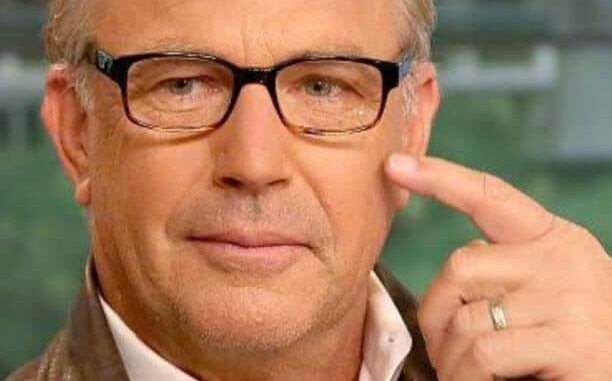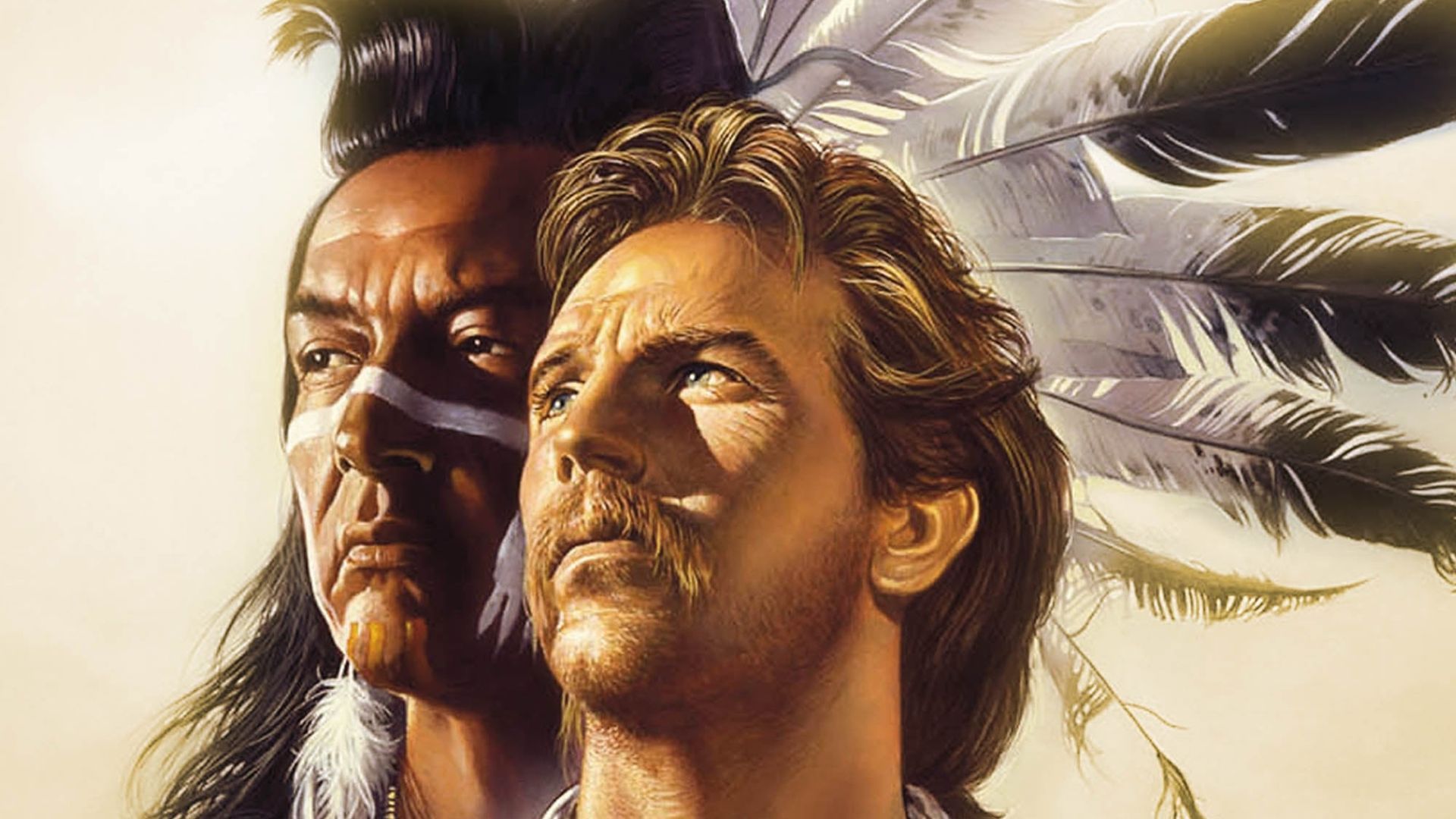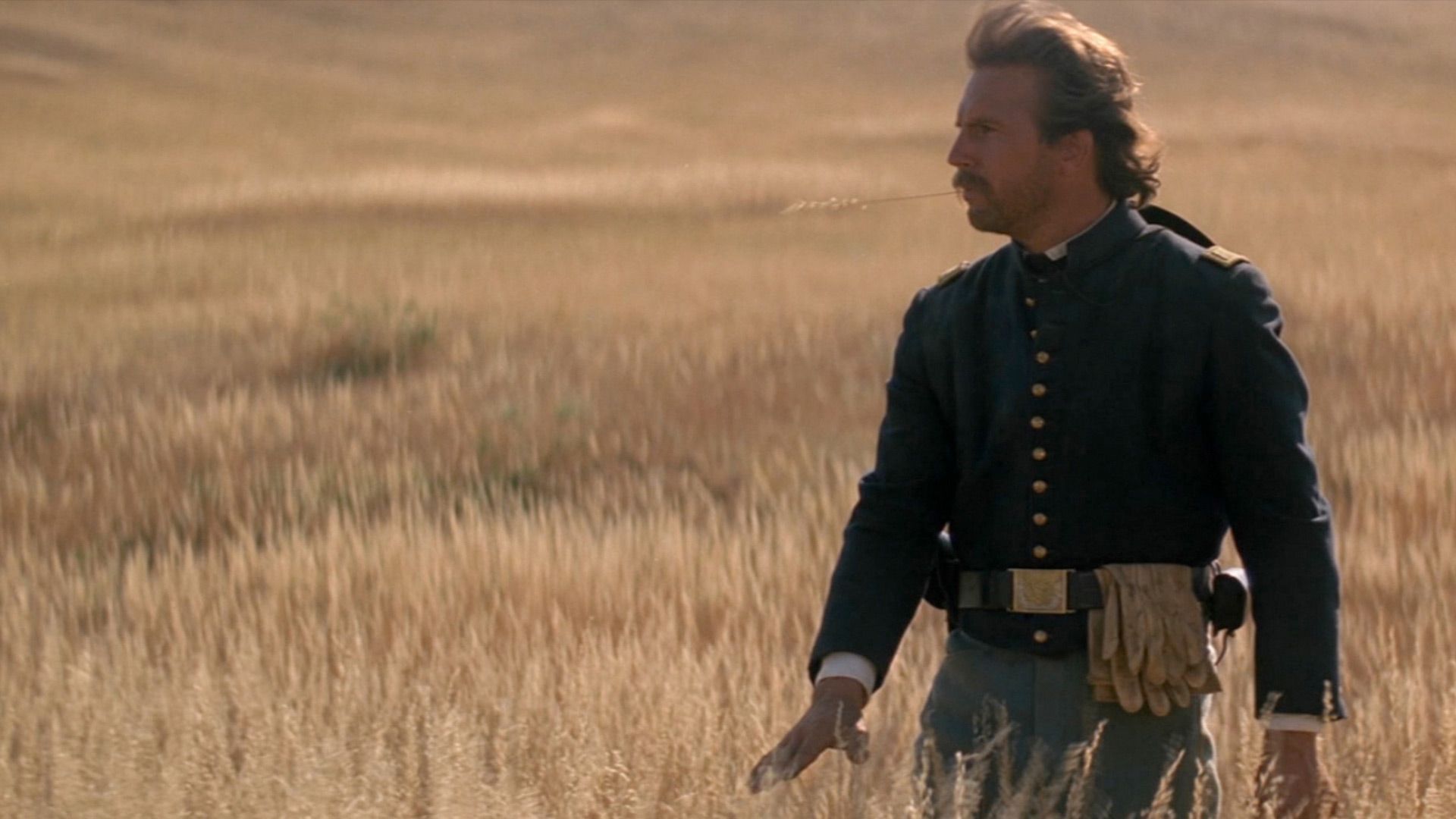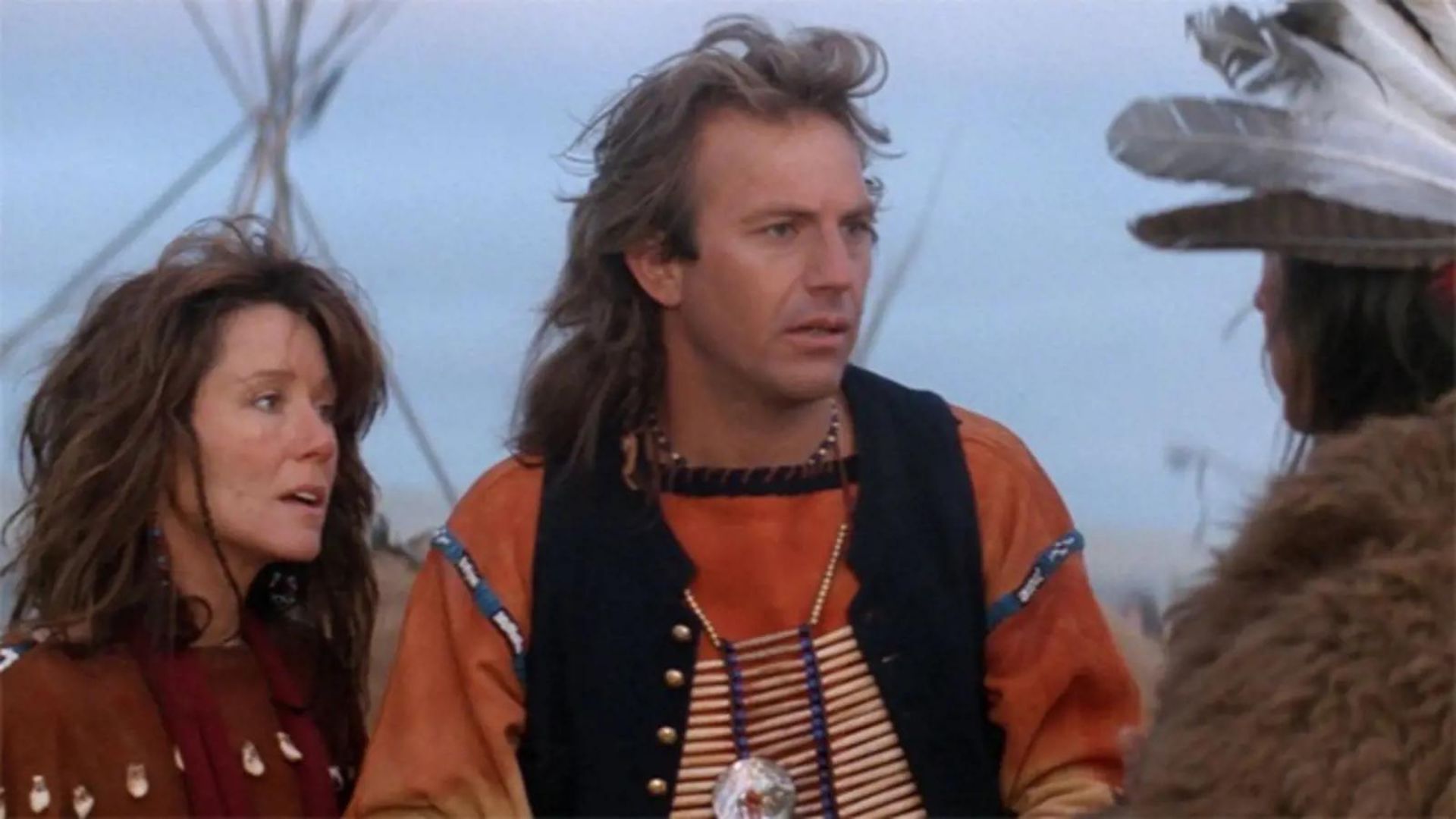
True to its title, Horizon: An American Saga – Chapter 1, we can expect to see a lot more of Kevin Costner in a brimmed hat and stache. From the announcement of the franchise, Costner is bullish on a Western revival, not only lending his talents in front of the camera but behind it as a director and producer. It’s no wonder why he’s made so many Old West films. His stoic, blunt speech pattern and gruff but upstanding persona were perfectly suited for a lawman or avenging cowpoke, his reputation built on channeling the spirit of Hollywood icons in movies like Dances with Wolves and Open Range.

Since Unforgiven, the luster has worn off the genre and never really returned. John Wayne is long dead, and Clint Eastwood has been deferring cowboy roles in the latter years, even though he remains the living embodiment of the Western for Baby Boomers. Who took up the mantle in the ’90s and onward? Don’t rack your brain too hard. There aren’t really that many options to choose from to complete our hypothetical Mount Rushmore of gunslingers.
A lot of performers have saddled up with some success, including Jeff Bridges, Viggo Mortensen, Russell Crowe, and Timothy Olyphant, but you’d be hard-pressed to find anyone who considers any of them integral to the canon or essential in revitalizing interest in the cowboy film as an art form. The one exception? In modern entertainment, the first name that comes to mind when it comes to six-shooters and dusters is Kevin Costner. How on Earth did a kid from Compton, California, become the face of the Western genre for a whole generation?
Costner Breaks Into a Dying Genre
There was arguably no worse period possible to try and jump-start fan appeal in the Western genre than the mid-’80s. Blockbusters were taking off, but they were shrugging off the low-concept shoot-em-up for adventures starring Nazi-fighting archaeologists, space wizards, and time-traveling high school students, a trend that continues, now with sequels. Film historian Pete Falconer, in his book The Afterlife of the Hollywood Western, observed there have only been sporadic hit Westerns, but “there has been no significant or sustained return to the regular production of Westerns in Hollywood since the 1970s.”
Foreshadowing his later success, Costner achieved recognition in the irreverent buddy comedy Silverado, alongside other new blood to the genre, Kevin Kline, Jeff Goldblum, and Danny Glover. In truth, Silverado took inspiration as much from Indiana Jones as from other cowboy flicks. Though stumbling at the box office, it has since been reappraised as one of the most underrated movies of the decade.

Segueing into spy thrillers (No Way Out), several baseball-themed movies (Field of Dreams and Bull Durham), and crime pictures (The Untouchables), he always professed a love of the Western. Sadly, by the late ’80s, he was probably the only one who still did. Sensing that the Western format had great stories to tell and still had not fully tapped into audiences’ demand for a frontier saga, the actor — now taking on duties as director and producer — took a huge gamble that could have permanently derailed his career. Following a long dry spell and a barrage of what author James Russell dubbed revisionist “Vietnam Westerns,” Costner brought back the traditional epic.
Costner Abandons His Boots for Superstardom
Made for what was then quite a large sum estimated at around $20 million in 1990, Dances with Wolves bucked the downward trend of the cowboy projects, avoiding the catastrophic fate that befell Michael Cimino’s legendary Heaven’s Gate a decade prior, a film that bombed so hard it temporarily killed the genre.

In one fell swoop, Costner had essentially made a big-budget indie passion project into a beloved blockbuster. Everyone noticed. We’re not saying that Tombstone or The Quick and the Dead wouldn’t have gotten greenlit if it wasn’t for Costner putting his butt on the line, but you have to think the movie making back its budget 20 times over played some role. No single actor or writer has sparked as much renewed attention than Costner in the genre before or since, as Russell noted in his essay on the film’s box-office haul:
“[…] the success of Dances with Wolves appeared to contradict negative preconceptions of the epic and Western films. In subsequent years the major Hollywood studios initiated a range of related productions, each designed to capitalize on the success of Costner’s unexpected hit.”
